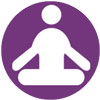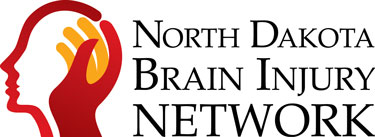Related Services
When an individual sustains a brain injury, there are many therapies and treatments available to them.
At NDBIN, we want you to be aware of all the tools for your toolbox. Our knowledgeable staff can help you navigate these services and recommend which might be best for you, but here is some information about these services to help you learn more about them.
- Alternative Treatments
- Employment Services
- Music Therapy
- Occupational Therapy
- Physical Therapy
- Speech Therapy
- Vision Services
 Alternative Treatments
Alternative Treatments
Alternative treatments have proven effective for some individuals with brain injury. These treatments often are not research/science based but have been known to allow some to succeed in their goals following a brain injury. Always consult with your physician before trying something new.
-
Chiropractors/Functional Neurologists
Chiropractors and functional neurologists specifically trained in brain injury can help survivors who have sustained a concussion or TBI by focusing on finding and rehabilitating the root cause of symptoms and imbalance that occurred within the brain and body following the trauma. For more information, check out this article: -
Hyperbaric Oxygen Therapy
Hyperbaric oxygen therapy (HBOT) is the use of oxygen at a high pressure level in a chamber designed for this use. The idea is that when trauma occurs, the brain swells and injured tissue does not receive enough oxygen, and this highly concentrated oxygen helps heal the injured tissue. Here is a good article on this therapy: -
Dry Needling
Dry needling can be used for pain management. It is a technique in which acupuncture needles are used to release muscle knots, neck tightness, and neck pain. -
Aromatherapy/Essential Oils
Some benefits from using aromatherapy/essential oils following a brain injury can be pain management, headache relief, wound healing, and memory stimulation. This article is from Craig Hospital in Denver, Colorado, some of the pioneers of brain injury treatment. -
Yoga/Meditation
There is a lot of research that shows the benefits of yoga and meditation following a brain injury. Kevin Pearce was featured in HBO's documentary The Crash Reel, and since his injury, he has started Love Your Brain. Love Your Brain has a wide variety of free meditation and yoga sessions available on its site. -
Medical Marijuana
Medical marijuana was approved for use in North Dakota for brain injuries in 2019. Some survivors find it beneficial for pain management.
Resources
 Employment Services
Employment Services
Returning to work after a brain injury is complex and specific to each survivor, their goals, and abilities.
Resources
- Brain Injury Prevention at Work
- Common Work Accommodations Following a Brain Injury
- Brain Injury Related Services: Vocational Rehabilitation
 Music Therapy
Music Therapy
Music therapy following a brain injury can be beneficial, especially in the areas of movement and language. Music therapy is much more than just turning on music and listening. Music therapists are specifically trained in cognitive strategies to help with a survivor's recovery.
Resources
- North Dakota Music Therapy Providers
- NDBIN Webinar Recording: Music Therapy
- Music as a Healing Tool After Brain Injury
-
NDBIN Provider Perspective Video — Learn more about music therapy.
 Occupational Therapy
Occupational Therapy
An occupational therapist (OT) can be greatly beneficial to the recovery of an individual with a brain injury. OTs make therapeutic use of everyday activities to help individuals develop, recover, improve, and maintain the skills needed for daily living and work.
Resources
- North Dakota Occupational Therapy Providers
- Brain Injury Related Services: Occupational Therapy
- Mental Inflexibility
- Quick Strategies for Common Cognitive Symptoms
 Physical Therapy
Physical Therapy
A physical therapist (PT) can help improve conditions related to physical functionality of individuals' daily lives that may have been impacted by a brain injury.
Resources
- North Dakota Physical Therapy Providers
- Brain Injury Related Services: Physical Therapy
- NDBIN Webinar Recording: Physical Therapy and Brain Injury
- Physical Therapy for Brain Injury
- Physical and Sensorimotor Problems
- Checklist for Better Sleep
 Speech Therapy
Speech Therapy
Many survivors tell us, “But I speak just fine!” when we recommend speech therapy services. Speech language pathologists provide services such as articulation for individuals who may not “speak just fine,” but they also have a whole wheelhouse of other strategies that can help with cognition, memory, sequencing, social skills, and the list goes on and on!
Resources
- North Dakota Speech Therapy Providers
- Speech & Language Pathology Infographic
- Traumatic Brain Injury: Benefits of Speech-Language Pathology Services
- Delayed Processing
- Language Problems
- Memory Problems
- Attention Problems
-
NDBIN Provider Perspective Video — Learn about how Progressive Therapy Associates provides specialized
services.
 Vision Services
Vision Services
Following a brain injury, many survivors experience vision needs, and once these needs are met, survivors often report fewer negative side effects of their injury. Some studies show about 75% of traumatic brain injury survivors suffer from visual dysfunctions, from blurred vision to headaches.
Resources
- North Dakota Vision Providers
- Provocative Vision Tests for Sports-Related Concussions
-
NDBIN Provider Perspective Video — Learn about the specialized services provided by Advanced
Neuro-Vision
Systems.
